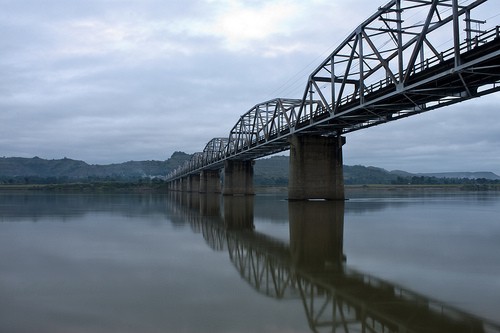TUGUEGARAO CITY – The provinces covered under the Cagayan river basin have been targeted in a new project designed to prevent development gains in these areas from being washed away by the adverse effects of climate change and other natural hazards.
The project, dubbed “Resilience Capacity Building for Cities and Municipalities to Reduce Disaster Risks from Climate Change and Natural Hazards, Phase 1 (Project ReBUILD)”aims to improve the governance framework of the Cagayan river basin.
Joining hands under this project are the New Zealand Aid Programme (NZAP) as funding agency, United Nations Development Programme (UNDP) as the project’s administering agency and the Climate Change Commission as implementing partner.
The agreement formalizing the partnership was signed on July 4 in simple ceremonies in Tuguegarao City. Signing the agreement were New Zealand Ambassador to the Philippines H.E. Reuben Levermore, UNDP Country Director Toshihiro Tanaka and Sec. Lucille Sering, Commission Vice Chairperson.
Sering hopes to realize the project’s objectives by putting in place the necessary enabling policy environment, mechanisms, systems and tools to address disaster risks from natural hazards and climate change which set back development gains and make the vulnerable poor population poorer. Part of the scheme, she said, is improving the competencies of the concerned personnel to improve project implementation efficiency.
“Many provinces falling under the Cagayan river basin are prone to climate-induced hazards such as landslides and floods that cause substantial losses in lives and property almost every year”. “They eradicate whatever advances that were made in the local economies,” Sering said.
Citing data from the National Disaster Risk Reduction and Management Council (NDRRMC) during the past decade, Sering said Region 2 where the Cagayan river basin is located, incurred the highest cost in total damages among five Philippine regions at PhP 945.5 Million.
The Project is directly aligned to the New Zealand Aid Programme’s objective of “prioritizing investment in improving the resilience of countries to withstand disasters and emergencies”, especially in view of the additional threat from climate change.
Consistent with the UN Development Assistance Framework and the UNDP Country Programme goal of supporting an inclusive, sustainable and resilient development, Project ReBUILD is regarded as part and parcel of a national integrated disaster/climate risk management approach to development planning and programming.
A clear gap that this project aims to immediately fill is the spatial dimension of the projected disaster risk from climate change at the city/municipality level where results can be immediately translated to mitigating measures like community based early warning systems, operational contingency plans and re-engineering of infrastructure. It is also at this level where concrete regulatory controls like risk-based zoning can be effected.
Project ReBUILD is strongly aligned with and responds to the priorities of national plans such as the Philippine Development Plan (PDP) for 2011-2016, the National Climate Change Action Plan (NCCAP) and the National Disaster Risk Reduction and Management Plan (NDRRMP).
Photo courtesy of Asian Cities Adapt.
Latest posts by Climate Change Commission - Philippines (see all)
- Gov’t rebuilds Cagayan River basin - July 4, 2013

